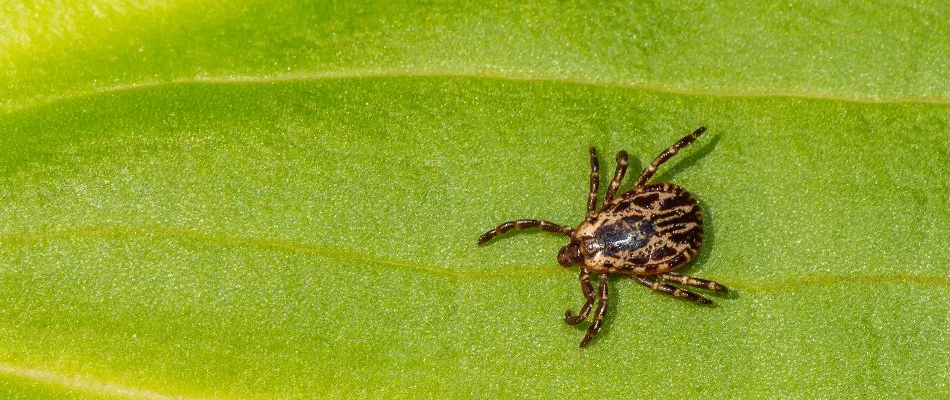If you plan to spend time outdoors in Memphis, TN, it's good to be aware of 4 common tick species, including the blacklegged, lone star, brown dog, and American dog ticks. Knowing how to identify these ticks can help you avoid contact with them and reduce the risk of contracting diseases. Taking precautions, such as wearing protective clothing, using tick repellent, and checking for ticks after spending time outside can help keep you, your kids, and your pets tick-free.
1. Blacklegged Tick
The blacklegged tick, also known as the deer tick, is a small arachnid with black legs and has a distinctive light brown and black carapace. They are most active from late spring to summer in Memphis, TN. Adult blacklegged ticks have a preference for larger hosts, such as humans, large domesticated pets, and deer, and they typically feed by attaching themselves to the skin of their host and sucking their blood. Blacklegged ticks live from 2 to 3 years but cannot survive long without a moist environment. Blacklegged ticks are known carriers of several diseases, including Lyme disease, babesiosis, and anaplasmosis.
2. Lone Star Tick

The lone star tick is another species to look out for in Memphis, TN, which can be easily identified by a small white dot on the female's back. It has a brown carapace and long antennae that help it detect potential hosts. This tick is most active during the warm summer months and can usually be found near creeks or animal resting places. It can live up to 3 years and can even endure long periods of time without food, sometimes over a year. It is known to carry STARI, a disease called Southern tick-associated rash illness, and alpha-gal syndrome, a condition that causes red meat allergies.
3. Brown Dog Tick
The brown dog tick is another common species in Memphis, TN, and is known for infesting homes and kennels. The brown dog tick is usually small and reddish-brown, but it will change color to a grey-blue shade when engorged with blood. These ticks can survive for up to 3-5 months without a food source during any stage of their life cycle. However, when provided with proper nutrition, they can complete their entire life cycle in just 3 months. The brown dog tick is notorious for its ability to live for extended periods of time indoors. They can burrow into carpets, upholstery, and even walls, making it challenging to eliminate them entirely. These ticks rarely cause diseases in humans, but they can transmit diseases that affect canines, such as babesiosis, ehrlichiosis, and anaplasmosis.
Keeping your lawn mowed and debris-free can help reduce tick populations on your property.
4. American Dog Tick

The American dog tick, also known as the wood tick, is a small, oval-shaped arachnid with a flattened appearance and distinctive brown and white markings on its carapace. These ticks are most active during early spring to late summer and can be found along forest lines in Memphis, TN. Once this tick has fed on three different hosts, its life cycle will come to an end. However, it can survive without food for up to two years at any given life stage. The American dog tick is known to transmit a range of diseases, including Rocky Mountain spotted fever and tularemia.
Call to schedule our tick control service today!
Ticks can be a nuisance and leave you concerned while spending time outside. If you need professional assistance in controlling these pests, you can get in touch with us at Picture Perfect Landscapes. We use backpack foggers to apply tick control treatments across your property so that we cover all areas. When you sign up for our tick control service, we'll visit your property every 30 days from April until October to reapply our treatments for overlapping, consistent coverage when you need it most. Our service is available for commercial and residential properties and HOAs in Memphis, TN, and other nearby areas, such as Midtown Memphis and East Memphis. Call us at (901) 246-7656 to schedule our tick control service!







Comments (0)
Thanks for your comment!
Thanks for your feedback! Your comments have been successfully submitted! Please note, all comments require admin approval prior to display.
Error submitting comment!
There is a problem with your comment, please see below and try again.